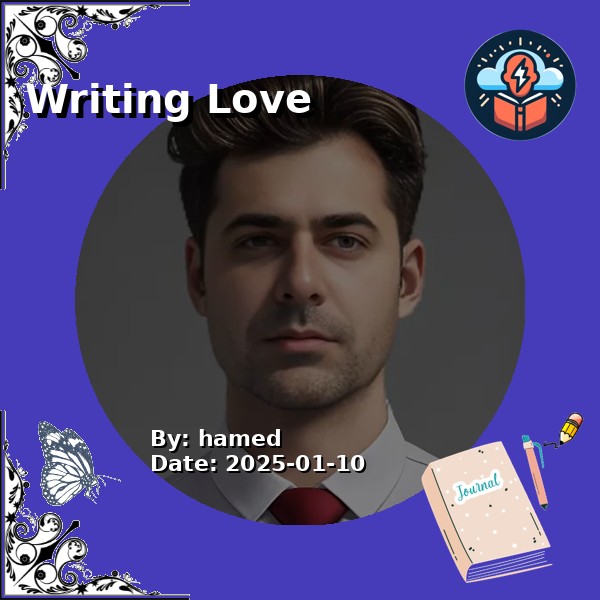Thomas Blake stared at the blinking cursor on his screen, watching it mock him with each flash. Sixteen bestselling romance novels, and now... nothing. His editor's calls went unanswered, his agent's emails unread. How could he write about love when every story felt like a lie, every scene a recycled cliché?
The coffee shop beneath his apartment became his refuge. Not to write – he'd given up carrying his laptop – but to escape the accusing silence of his study. He ordered the same thing every morning: a large Americano, black, like his mood.
That's where he first saw her, arguing with the barista about the superiority of physical books over e-readers. Her wire-rimmed glasses kept sliding down her nose as she gesticulated, her messenger bag overflowing with worn paperbacks. When she turned to leave, he noticed she was carrying his first novel, its spine cracked from multiple readings.
"That's a terrible book," he said before he could stop himself. "The protagonist is unrealistic."
She looked at him, really looked at him, in a way that made him feel simultaneously exposed and intrigued. "Jonathan Price?" she asked, reading the author's name – his pen name. "I disagree. His desperation feels authentic, even if the happy ending doesn't."
"Happy endings are overrated," he muttered.
"Only to those who haven't earned them yet," she replied, then walked out, leaving behind the scent of old books and possibility.
Her name was Claire, he learned the next day when she returned. A literature professor specializing in romance novels – of all things. She didn't recognize him, and he didn't correct her assumption that he was just another cynical reader.
Their debates became daily events. She defended the genre he'd grown to despise, finding depth where he saw only superficiality. She quoted his own words back to him, finding meanings he'd never intended, layers he'd never consciously created.
"Love stories matter," she argued over their fifth coffee date (not that he was counting). "They remind us that vulnerability isn't weakness, that risking everything for love isn't foolish – it's the only thing that makes sense."
He started writing again that night, but not his usual plot-driven romances. Instead, he wrote about a woman who saw beauty in clichés, who carried books like others carried dreams. He wrote about coffee shops and arguments about literature, about the way her glasses fogged up when she laughed.
When she finally discovered his identity – finding his photo on an old book jacket – her reaction wasn't what he expected. She threw his latest manuscript at him, the pages scattering like autumn leaves.
"You've been researching me?" she accused. "Making me your next plot device?"
He gathered the pages slowly, deliberately. "No," he said. "For the first time in my career, I'm not writing fiction. I'm just writing the truth."
It took three weeks of coffee deliveries to her office, each cup coming with a chapter of his story – their story – before she agreed to listen. He read her the ending, the real ending, not yet written but lived in every accelerated heartbeat when she was near.
His next book was different from his others. Critics called it his most honest work, unaware that every scene was a memory, every dialogue a transcript. It was the only book he ever published under his real name, with a dedication that read: "To Claire, who taught me that the best love stories aren't written – they're lived."
Thomas Blake never wrote another conventional romance novel. Instead, he wrote love letters to his wife, one every morning, left beside her coffee cup. Because he finally understood that the greatest story wasn't the one he was writing – it was the one he was living.
